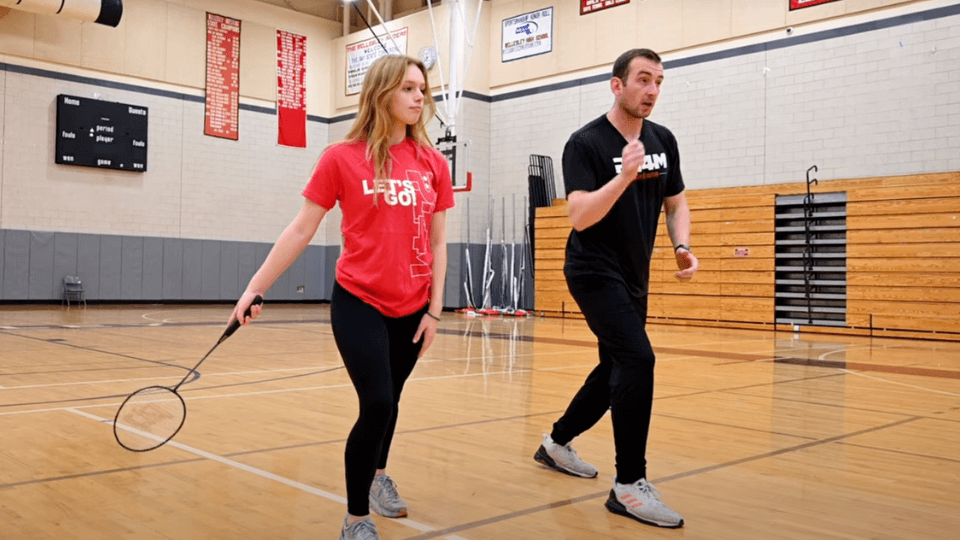About the Author
Part of team PLT4M, Coach Max is a former collegiate football player and competitive Crossfitter who has spent the last 6 years training athletes at the high school, college, and professional level. Max currently heads up all things movement and technique at PLT4M, as well as owning & running Crossfit Tilt, home of PLT4M headquarters, in Waltham, MA.
Circle of Control vs. Circle of Concern
What are your athletes talking about on the bus to an away game?
The weather? How it’s so cold, they don’t know how they’ll grip the ball?
The other team? The running back who trucks linebackers and has defensive backs bouncing off of him?
The next game they’ll play? How if they win this game they have a chance to make it to the playoffs?
If you’ve ever been on the bus and heard chatter like this you know exactly what we’re talking about. You can prepare your athletes for everything on the field, but if you’re not coaching up their mental game, you are flirting with disaster.
In order to be successful, your athletes need to spend their limited focus and energy on certain things, while avoiding others. How do we help them determine which is which? We can do so by instilling in them a concept known as “The Circles of Control and Concern”. What we do, essentially, is place the myriad of things on an athlete’s mind into one of two camps. The first houses all of the things that an athlete can actually control. The second takes all of those things that are a waste of mental energy in that they cannot be changed, and thus are not worth the time. Let’s take a look at some simple examples:
CONTROL
- Effort – Are they giving their best effort that day? This applies to all aspects of their game. Are they giving their best effort in practice, during film, and during the day in class.
- Nutrition – Are they fueling their bodies properly? This means your athletes are eating real foods and staying away from junk (this can be found in almost all of the vending machines around campus).
- Hydration – Are they drinking water during the day? How much and when should they hydrate? They should drink when they’re thirsty and stop when they feel quenched. Should they be drinking sports drinks like Gatorade or Powerade? No. Those drinks are filled with sugar and will adversely affect their effort, nutrition, and sleep.
- Sleep – Are your athletes sleeping 8+ hours a night? If the answer is no they may need help managing their homework schedule or possibly cut TV/Phone/Internet out of their nighttime ritual.
- Tough Mindset – Do your athletes embrace discomfort? Do they find value in hard work? Are they junkyard dogs? A junkyard dog is an athlete that thrives when things get hard. Train your athletes to love the feeling of being out of breath and uncomfortable. If you can instill this mindset in your athletes they will truly be unbeatable.
- Weather – For outdoor sports teams you will always hear at least a handful of your athletes complaining about how cold it is or how the rain is ruining field conditions.
- Competition – The other team has a player that is unstoppable. As the week goes on and you get closer and closer to game day this athlete is now a giant that eats kids for breakfast and washes them down with an entire pond.
- Teammates – Competition between teammates can be good. It can bring out the best in your athletes. But, it can also have your athletes focusing on their teammates more than they are focusing on their own effort.
- The Future – This is when your athletes are looking past the task at hand and thinking about “what if” situations.
- Repetition – We, as coaches, need to repeat things over and over again if we expect our athletes to develop good habits. Always keep in mind that practice makes habit, not perfect. We need them to develop good habits not perfection. Set your expectations and STICK TO THEM! The moment you accept exceptions, your athletes will expect them.
- Reinforcement – Praise your athletes when you see them focusing on their Circle of Control. Let the know you noticed them eating an apple before practice instead of a bag of Skittles. Make sure they are aware of when they are doing things the right way. Positive reinforcement is more powerful than punishment.
- Leading by Example – Your athletes are always watching. They look to you for guidance even when they’re not asking for it. If they see you complaining about the rain on Friday night or eating donuts before practice, they will think that behavior is ok. Be the best leader you can be and watch your athletes follow suit.










